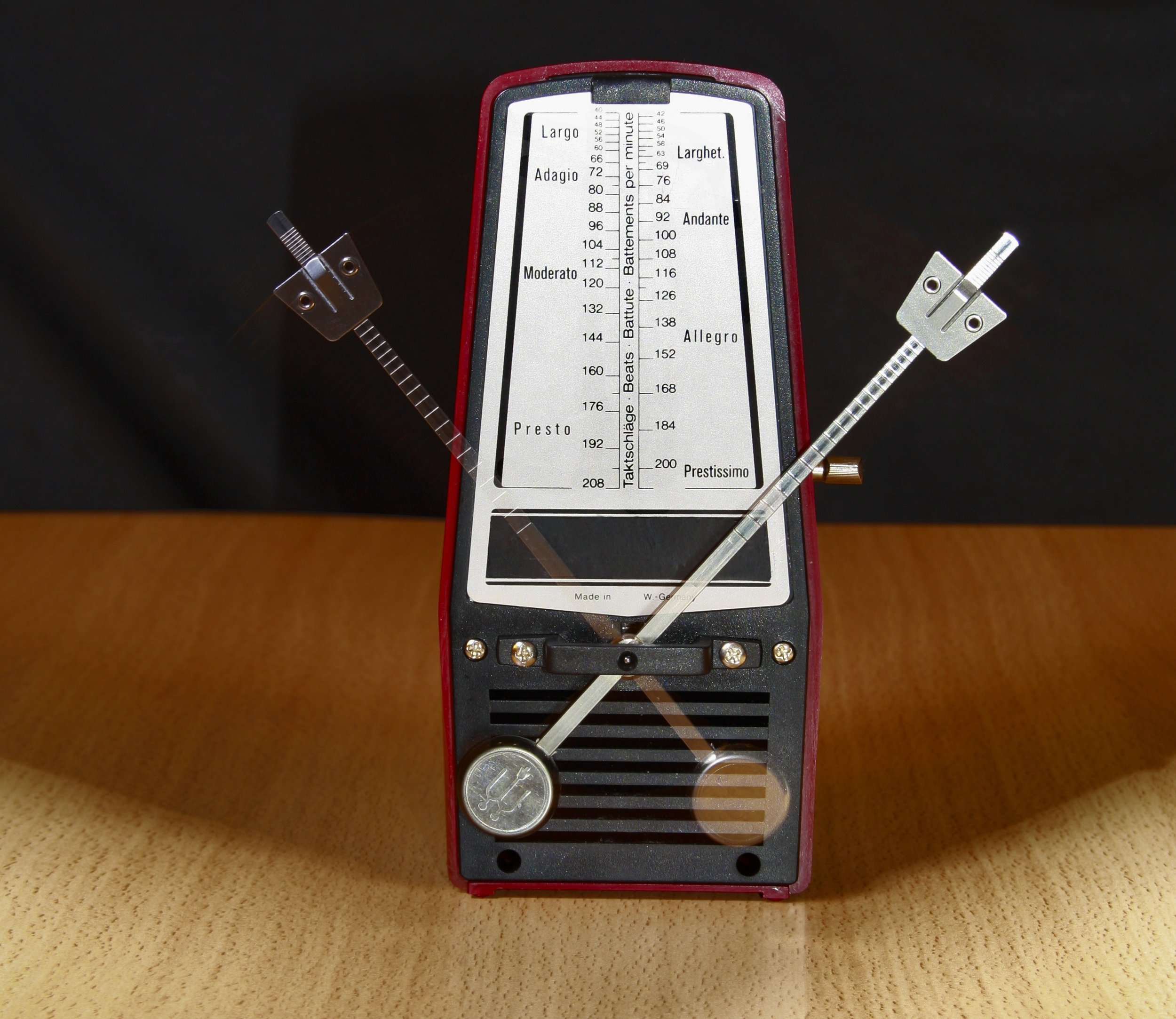Slow Practice
I have lost count of the number of times I have been told as a student to engage in "slow practice." I'm equally at a loss as to the number of times I've passed on this direction as a teacher.
- "Try that section again, slowed down."
- "When you work on this at home next week, slow it down to a more comfortable tempo."
- "Spend some time with this phrase at a slower tempo."
- "If you slow down, you'll be able to coordinate fingers and air more easily."
- "That left over right hand crossing will smooth out if you slow it down."
But regardless of whether you are on the giving or receiving end of this advice, sometimes it can feel like you're listening to a broken record. Why all of this emphasis on slow practice?
It's excruciating
At first blush, slow practice can feel torturous, no matter how long you've been playing music. Slowing your 16th notes down so they are played like 8ths--or somehow worse, quarter notes--can feel like the ultimate in excruciating practice. If you're a beginner, you may assume the teacher thinks you can't handle the "real" tempo of a piece. A little more advanced, and it feels like you're holding yourself back by spending so much time under the final tempo. And I can tell you as a professional, there's a real temptation to think you are "better than this" when a beloved mentor recommends you spend some time with your metronome set to what feels like an unreasonably low number.
The rewards are worth it
Why do musicians hear and share this correction so often?
Because it has tremendous merit. There is so much to be gained from slowing down and being fully aware of what and how we are playing. Here are a few of my favorites.
Intonation
One of the greatest gifts my high school flute teacher gave me--aside from an enduring love of the Baroque--was a deep understanding of slow practice and intonation. Under her expert guidance, I spent months with Trevor Wye's Tone book, a tuner, and a metronome set at 60 bpm. Slowing down, working in half step pairs of quarter notes, allowed me to really understand how I was producing sound, what I could change to get a more focused/in tune tone, what sort of sound concept I wanted to convey. What I learned in those slow practice sessions continues to inform my playing and teaching two decades later.
Hang in there, pianists. You may not have direct control over whether your chords are in tune or not, but you do have direct control over how you are approaching tone production. Just like with woodwinds, slowing down allows you to really listen to how you are creating your sound. Are you playing from your wrists? Elbows? Shoulders? What happens if you experiment with one versus another? Can you change how you voice a chord by weighting your attack differently? You, too, have a lot to gain in your tone by slowing down.
Accuracy
The phrase "perfect practice makes perfect" is attributed to Vince Lombardi, and it is as applicable in the practice room for musicians as it is on the practice field for athletes. While we can discuss whether the word "perfect" really should have a place in our vocabulary as musicians, there's a great lesson here regardless. Accurate, deliberate practice leads to accurate, deliberate performance. Often times when working on a piece at a fast tempo, our inclination is to push to keep the speed up, sometimes sacrificing accuracy in the name of speed. Approaching a piece slowly allows for the opportunity get comfortable with the finger patterns, embouchure changes, air speed, and other nuances that can easily be overlooked when playing fast.
Stamina
Slow practice strengths the physical aspects of your playing. If you can make it through your Clementi sonatina at half the speed it was intended to be played at without your arms giving up, you will have no trouble maintaining your strength when it zips by at 108 bpm. If you can breathe your way through Carl Maria von Weber at 42 bpm, your lungs will thank you when you get to 132.
Mindfulness
This may be my favorite benefit of them all--although as a piccolo player, I have to say that intonation may actually share the number one spot with mindfulness. When you slow down, you're removing some of your adrenaline and anticipation from the equation by allowing yourself to observe each note as it comes. Did it match your inner concept of that note? If not, try again with the next note, focusing on just that moment. If it did, can you carry that concept through the entire phrase? How does your body feel when you play that note, that chord? Is it relaxed and easeful, or are you carrying extra tension that's inhibiting your sound?
These kinds of questions can be difficult to evaluate when working a piece at tempo when a good deal of mental energy is expended elsewhere. Slowing down your practice lets you get inside your music and examine what you find there. It's an incredible tool on your journey to improve your musicianship.
